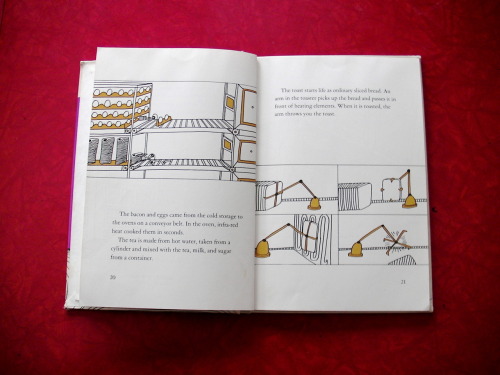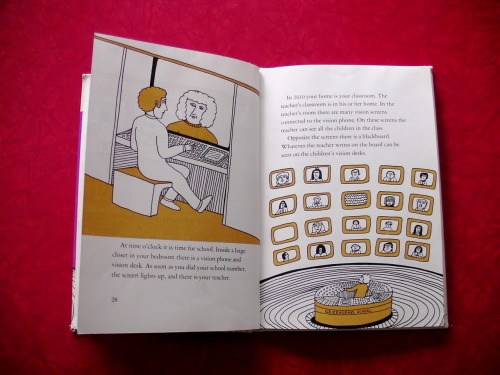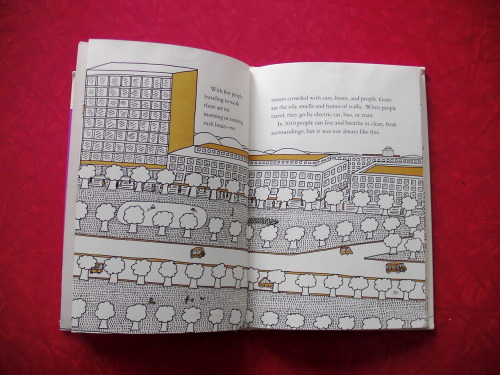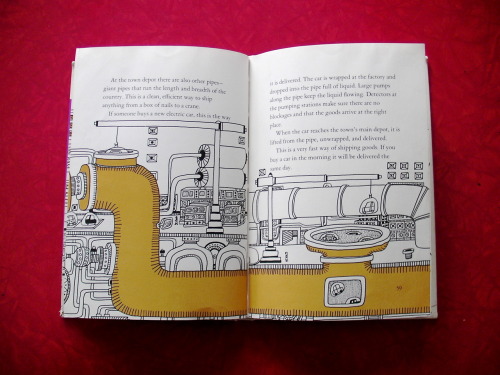This is a children's book written in 1972 by a guy named Geoffery Hoyle. It's really interesting, I thought I might try to start a discussion about it.
READ & VIEW HERE
The first things that stuck out to me were about automation and interaction.
The house is bascially a custom built machine that supplies your every need and customisation. Machines of course can solve all the environmental, social and health problems in the minds of the 1970s futurist. Environmental problems could all be solved if we were more efficient. It's interesting because it is so rigid, whereas now we consider the future to be one of flexibility, change and adaptability. A built in wardrobe is switched for something individual and lightweight, which will go out of fashion in 5 years.
People often mistake customisation for individuality. Interaction with the machine is to give it your custom order. This of course, gives you power and the ability to be an individual. Exactly how you like your eggs is related to your self-awareness. But it's as shallow as choosing your customised numberplate.

Fashion has become chosing the colour and pattern of your futurist-jumpsuit. Where does creativity go? Did people believe that in 40years time (possibly their lifetime), fashion and similiar forms of creative expression would be unceremoniously replaced with their more-efficient jumpsuit counter-parts. Cooking is the same, it is completely automated.
While now, we may see things like this to be 'mass-produced' or plastic - the author rejoices in these efficiencies. Interaction with work and school is automated, as is ordering from a restaurant.
The fact is, the things that don't change is what the author believes everything else allows and supports, your ability to hang out with your friends, go to the sports game, and play guitar. Machines mean the air is clean and fresh, the environment is protected, and we can fit all the people onto the planet comfortably.

And yes : N.B the series of tubes.
